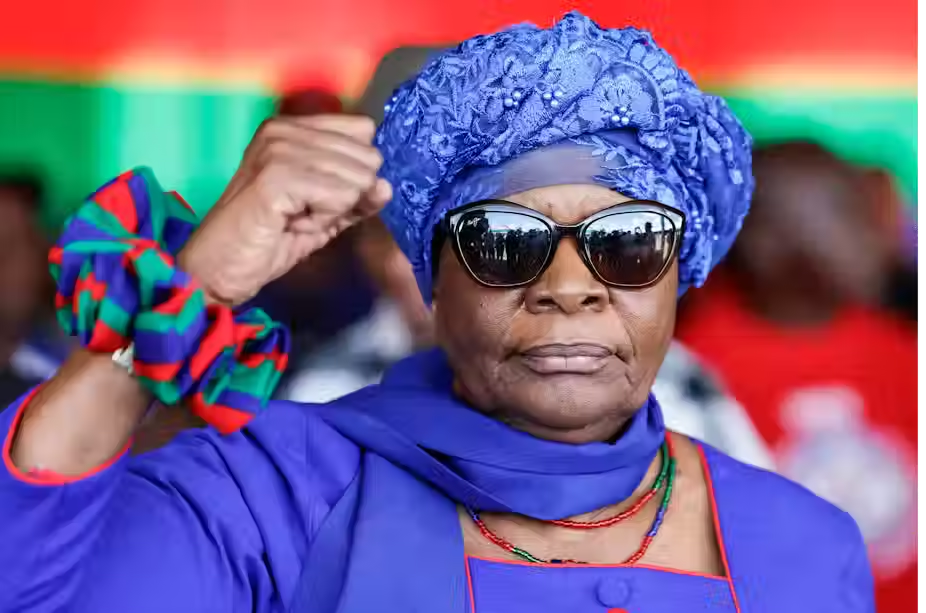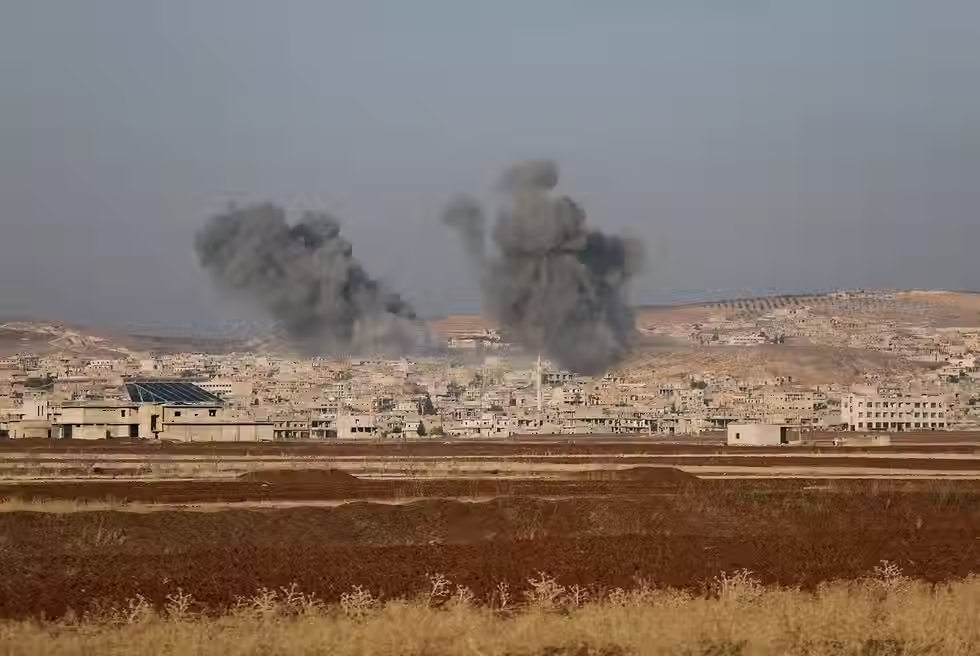Global Pulse #4
- JSIA Bulletin

- Dec 9, 2024
- 6 min read

Namibia Elects First Female President Amid Controversy
Writer: Sanjana Rao
On December 3, 2024, Namibia made history by electing its first female President, Vice President Netumbo Nandi-Ndaitwah, who secured 57% of the vote. The election, however, was marred by significant controversy, including technical glitches that led to a three-day extension for voting leading to additional accusations of illegality from opposition parties. Nandi-Ndaitwah's ruling SWAPO party maintained a slim Parliamentary majority, despite facing criticism over high unemployment and economic challenges. The validity of the election has been questioned, with opposition leader Panduleni Itula claiming that many voters were disenfranchised. Nandi-Ndaitwah, a veteran of Namibia's independence movement, emphasized her commitment to peace and youth empowerment in her victory speech. The Electoral Commission of Namibia has rejected calls for a re-election which has further fueled tensions in the political landscape.

East African summit urges peace in eastern Congo but its leader skips talk.
Writer: Rohan Shah
East African heads of state made another push for peace in eastern Congo on Saturday but its prospects remained bleak following a regional summit that was marked by the Congolese president’s absence and an early departure of his Rwandan counterpart.
A communique read at the end of the closed-door meeting of the East African Community in Arusha, Tanzania, only stated the need to combine regional and broader peace initiatives for sustainable peace in eastern Congo.Violence has reemerged in one of the world’s most protracted conflicts in eastern Congo, wherein the Congolese government accused the Rwanda-backed M23 rebel group of “ethnic cleansing” in mineral-rich areas close to Rwanda’s border.

Trudeau and Trump Discuss Trade Tensions at Mar-a-Lago Dinner
Writer: Sanjana Rao
On December 3, 2024, Canadian Prime Minister Justin Trudeau and US President-elect Donald Trump held a dinner meeting at Mar-a-Lago, Florida, amid rising tensions over trade and border security. President Trump threatened to impose a 25% tariff on Canadian imports unless Canada addresses illegal immigration and drug trafficking across the US-Canada border. Trudeau warned that such tariffs would devastate the Canadian economy. In a light-hearted exchange, Trump suggested that Canada might consider becoming the 51st state of the USA, joking that Trudeau could still hold the title of Prime Minister or serve as a governor. The meeting lasted almost three hours and focused predominantly on tariffs, trade deficits, and the need for Canada to take action before Trump assumes office on January 20, 2025.

Uruguay president-elect Orsi urges respect for ties with a conflict-ridden Venezuela.
Writer: Rohan Shah
Uruguay's president-elect Yamandu Orsi reiterated his controversial position on Venezuela during a press conference on Wednesday, saying his country must respect diplomatic relations in place with the Venezuelan national authorities.
Orsi, who took office in March following his November 2024 victory for the center-left, said he would decide "in the moment" whether to invite Venezuelan President Nicolas Maduro to his inauguration who has become increasingly isolated in the region, following a disputed July election. Uruguay's current President Luis Lacalle Pou has repeatedly criticized what he described as the authoritarian regime in Venezuela, most recently at the United Nations General Assembly in September.

Georgian demonstrators clash with riot police near parliament for 6th straight night following suspension of EU talks.
Writer: Aniket Vijayvargiya
Nearly 300 protestors have been detained with 26 police officers being hospitalised following the wave of violence that has swept Georgia. Thousands of Georgian demonstrators converged on the parliament on Tuesday venting their rage regarding the government’s decision to suspend negotiations on joining the European Union until 2029- a move that has flamed public anger amidst accusations that the governing party had rigged the parliamentary elections in October with the help of Russia.Members of the opposition party are hopeful that the on-going protests will initiate a new round of elections as violence entered its 6th straight night in a row. The European Union had granted Georgia candidate status in December of 2023 which was ultimately put on hold in June after the statements acted as a “passage of foreign influence” in the country. Furthermore the EU voiced its concerns regarding Georgia’s increasing democratic backslide and insisted that protests should not be quelled.

France and Saudi Arabia Partner to Co-Host Landmark Conference on Palestinian State Creation
Writer: Vanshika Saklani
French President Emmanuel Macron has announced a groundbreaking partnership with Saudi Arabia to co-host a global conference aimed at advancing the creation of a Palestinian state. The initiative signals renewed diplomatic efforts to address one of the most enduring conflicts in the Middle East. The conference will bring together international stakeholders to discuss frameworks for a two-state solution, economic support for Palestine, and pathways to lasting peace. Macron’s announcement highlights France’s ongoing commitment to Middle Eastern stability, while Saudi Arabia’s involvement underscores its evolving role as a key regional power and mediator. The collaboration aligns with recent normalization efforts between Israel and Arab states but comes amidst skepticism about tangible outcomes in light of recent escalations in Gaza. Observers are optimistic that this partnership may reignite stalled peace talks and foster constructive dialogue in an otherwise polarized international landscape.

South Korea President declares emergency martial law, sending shockwaves in the country
Writer: Harman Kaur Minhas
South Korean President Yoon Suk Yeol declared martial law on 3 December 2024, citing opposition actions as anti-state behavior, but quickly reversed the decision following intense backlash. Lawmakers voted overwhelmingly to block the decree, and opposition leaders now demand Yoon’s resignation, accusing him of undermining democracy. The President criticized the opposition for hindering his administration’s efforts. However, it faced public outrage and calls for accountability from dissenting voices. The U.S. expressed concern over these developments. Yoon’s brief martial law order revived fears of South Korea’s authoritarian past, marking a significant political crisis in the country’s democratic history.

China bans rare mineral exports to the USA
Writer: Harman Kaur Minhas
The U.S. and China are locked in a “tech war,” marked by escalating trade restrictions. The U.S. aims to curb China’s advancements in AI and semiconductors, critical for technology and military applications. Recent U.S. bans target Chinese companies and materials, including gallium and germanium, essential for chipmaking and clean energy. In retaliation, China has tightened export controls on these minerals. The conflict consequently disrupts global supply chains, raises production costs, and heightens geopolitical tensions. Taiwan, a major chip producer, remains central to the dispute, further complicating U.S.-China relations.

Syrian city of Hama to become key battleground as multiple forces converge amidst escalating civil war in the country.
Writer: Aniket Vijayvargiya
The Syrian rebels advancing against Syrian President Bashar Al-Assad pushed closer to the major city of Hama, considered to be one of the largest cities in Syria. The rebels, unofficially backed by Turkey, inched closer as Assad’s forces scrambled to defend the sudden escalation which took place last week. Along with the escalating conflict, Russia and Iran have pledged support to Assad’s forces and have begun carrying out airstrikes in the region against the Syrian National Army, a massive escalation as it establishes the official involvement of Russian forces in the conflict. Meanwhile, the United States carried out airstrikes against “military assets that posed a threat” in the region, highlighting the growing number of nations involved in the multi-sided conflict since 2011. The Israeli government released a statement which established the conduct of air strikes near Damascus, the capital of Syria, allegedly killing a Hezbollah commander. Many researchers consider this to be a significant conflict between the Turkish backed insurgents and the Kurdish-led SDF, which is considered a terrorist organization dedicated to achieving Kurdish statehood.As concerns of a confrontation between these multiple forces grows, Hama will become a key-point of capture for strategic importance, and will define control of various regions of Syria in the coming weeks.

Israel threatens a stronger Lebanese offensive, given truce talks break down upon ceasefire violations.
Writer : Vanshika Saklani
Tensions between Israel and Lebanon have escalated after U.S.brokered truce negotiations broke down, with Israel threatening a stronger military offensive. Both sides have accused each other of repeated ceasefire violations, undermining efforts to stabilize the volatile Blue Line region. Lebanon has sought U.S. and French intervention to pressure Israel into adhering to the truce. However, despite these efforts, skirmishes along the border continue, raising fears of a full-scale conflict.
Israel, citing security concerns, emphasized its readiness to act against provocations, warning that it would not differentiate between Hezbollah militants and the Lebanese state. Backed by U.S. assurances of intelligence-sharing and support to counter Iranian influence, Israel has justified its aggressive stance. The international community has expressed alarm, with analysts cautioning that the ongoing impasse could further destabilize the Middle East. Restoring effective dialogue remains critical to de-escalate tensions and avert humanitarian crises in the region.
.png)



Comments